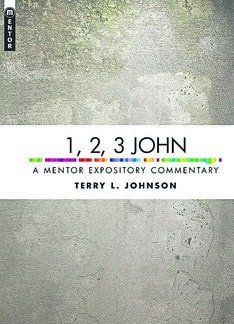There is, arguably, no more searching book in the Bible than the first letter of John. I may say that I am a Christian and believe that I am a Christian, but the key question is, am I? John, in his first letter, addresses this question head on. He does so lest we be deceived into thinking we are Christians when we are not.
John also writes for the sake of genuine believers: ‘John’s ultimate aim in his first epistle is to give his readers solid grounds for assurance that they have eternal life through belief in Jesus Christ’ (p.5).
Terry L. Johnson identifies three basic tests that John uses to help us ‘discern … the genuine Christian’: the theological, moral and social.
There is the theological test. ‘According to the apostle John, it matters what we believe’ (p.5). By the denial of certain fundamental doctrines (such as the incarnation and humanity of Christ), we forfeit the right to consider ourselves Christians: ‘We must be of sound doctrine if we are to be truly Christian’ (p.6).
Then there is the moral test. What could be plainer than this: ‘The one who says, I have come to know him, and does not keep his commandments, is a liar, and the truth is not in him; but whoever keeps his word, in him the love of God has truly been perfected’ (1 John 2:4-5)?
Finally, the social test. Here the focus is on love for our fellow believers. Such love is the evidence that we have passed from death to life (1 John 3:14). Its absence is a sign that we do not, indeed cannot, love God.
Themes like these mark John’s letter out as one of extraordinary importance. Dr Johnson’s expositions help bring its message home to us. His commentary has several evident strengths. The words of John are not only explained, but illustrated and applied. This reflects the commentary’s origins in Dr Johnson’s pulpit ministry.
The structure of each chapter is clear and the style accessible. The book is also enriched by quotations from other expositors. Nor is this just a commentary on John’s first letter. Appropriate attention is given to the second and third letters as well.
There are occasional blemishes. The repeated insistence in chapter 5 that Christ propitiates sin is one (Christ propitiates God, not sin). As a whole, however, this is a fine exposition. Preachers, especially, will find it helpful.
David Campbell
North Preston




